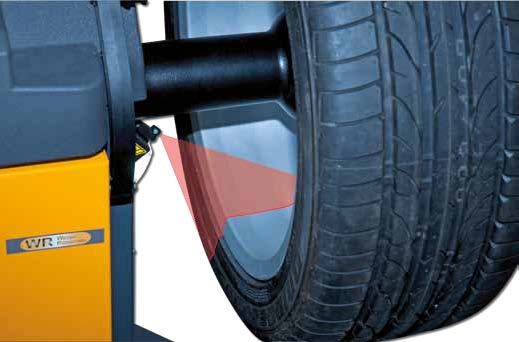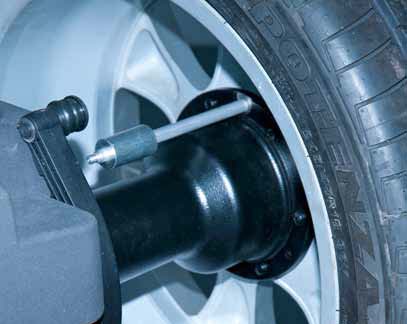Blog
Piston Vs Screw Compressor in Tyre Industry
Selecting the correct air compressor can be complicated. One area of confusion is what machine is more suitable for a tyre business – a piston compressor or a screw compressor.
To assist you in making this decision, please see some pointers that should be considered when selecting whether a Piston or Screw Compressor is the right choice.
Some people are under the impression that screw compressors are a ‘new thing’ and their inquiries may stem from the desire to have the latest technology. The fact is screw compressor design was originally patented in Germany in 1878, and further developed after WWII, for large industrial applications. In recent times these machines have become more affordable due to automated mass manufacturing and low input costs in Asia. However, they remain expensive compared to piston compressors and are not suitable for all applications.
Sound reasons why you should NOT buy a screw compressor:
Electronics.
They are computer controlled. Sensitive electronics make screw compressors susceptible to power spikes and surges. Many screw compressor manufacturers use proprietary computer chips which are not repairable if damaged, and cost a lot to replace.
Cost.
The strategy of compressor companies selling the rotary screws is often to sell their compressor at low profit margins with the intention of making high profit on the scheduled maintenance at a later stage. They are often sold with lock-in maintenance contracts, which require that the supplier’s specialised technicians and original spare parts are used – at a high cost to the customer.
Complexity of design.
Screw compressors have many more components than piston compressors. They are oil cooled, so have coolers, air/oil separator, oil filter etc. More things to go wrong, more places to leak, more consumable parts to replace.
Environmental requirements.
Due to the complexity of design, screw compressors need a very clean workplace. Dust contamination will damage oil and clog coolers, resulting in overheating and down time. This leads to expensive repairs and lost production.
Serviceability.
Screw compressors are computer controlled, so specialised equipment and computer software are needed to analyse & repair them. This makes maintenance very expensive, particularly in country areas, due to expensive labour and travelling costs.
Risk of damage.
If oversized in respect of the compressed air usage, the compressor will not get hot enough to ‘boil off’ moisture in the oil. The presence of water in the oil reduces lubrication. The result is compressor damage to the air end (pump) bearings, due to this oil contamination.
Application.
Screw compressors are suited to heavy, continuous demand (90-100% per 24 hour) applications.
Aspects of their design, like oil cooling, and high duty electric motors are only necessary for this type of application. So it is wasteful to resources and harmful to the equipment to use them in light duty / intermittent applications such as in mobile tyre servicing.
In contrast, here are some good reasons to buy a Piston Compressor:
Simplicity & Serviceability.
Piston compressors are simple machines. They don’t require specially trained technicians; most mechanically-minded people are capable enough to work on them. Generic compressor components (such as pressure switches, check valves, air filters, v-belts etc.) are readily available from many different sources. Good tool stores & industrial suppliers readily supply these. Furthermore, piston compressors only need standard workshop tools, such as spanners, screw drivers, etc., to carry out repairs.
Cost.
They have a lower initial cost, and lower ongoing running costs. They do not require specialised coolants and consumables that frequently need changing. Piston compressors have fewer parts, therefore less to go wrong.
Environment requirements.
Piston compressors are a lot more forgiving in a dusty workplace. Finned cooling design makes for easy cleaning, and belt driven compressors generally have low running speeds making them very robust.
High pressure versatility.
Two stage piston compressors (up to 175psi) are common and inexpensive, whereas high pressure screw compressors are not common.
Application.
Ideal for workshops, tyre stores, engineering works, transport companies, farmers, and light industrial applications – if the job to be done has intermittent demand for compressed air, this is the correct choice.
High flow requirements.
If flow requirement exceeds the capability of one piston compressor, a second unit can be used. This machine could take the form of a complete compressor, or a base-plate mount (that is, without a tank). This solution is not complicated to install and operate and is commonly used. It also gives the versatility of only running one compressor, if air usage at a particular time is low.
Guernet Diesel Reciprocating Air Piston Compressor for Mobile Tyre Truck – TL054D2X17
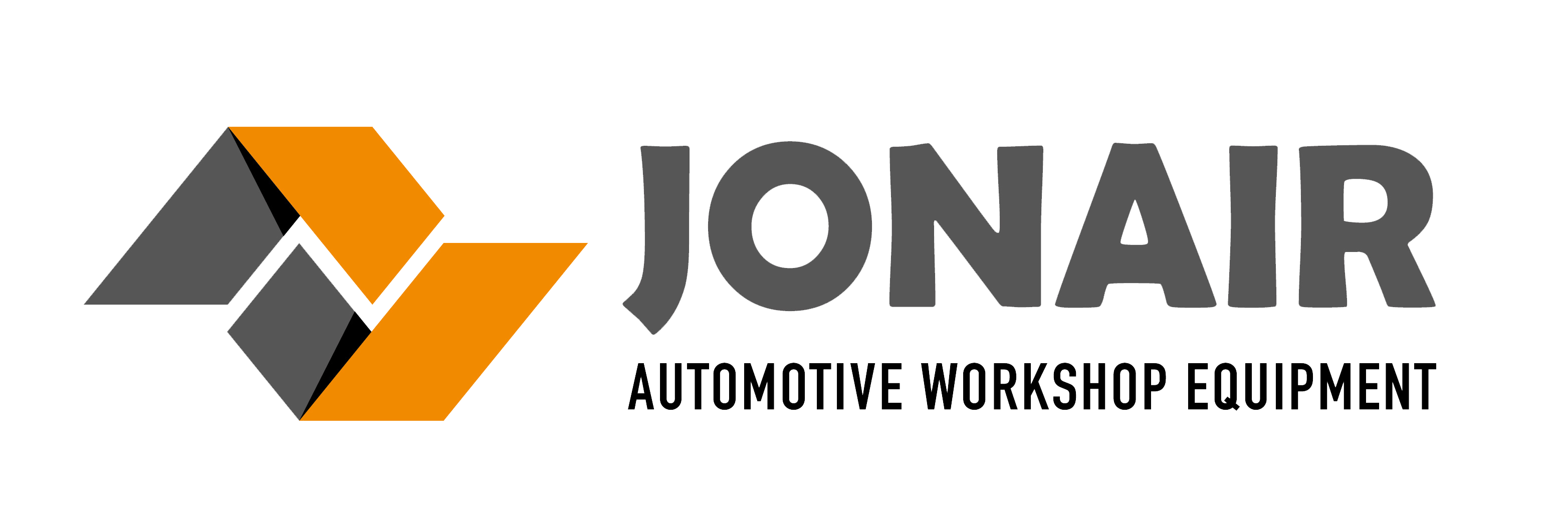
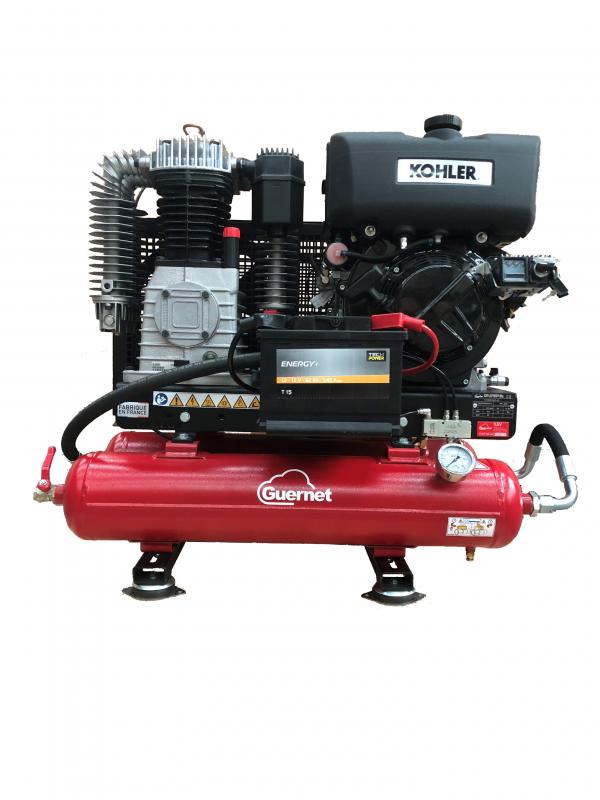
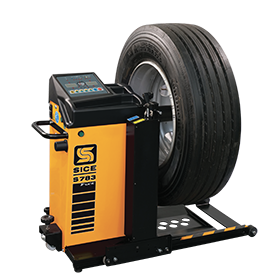
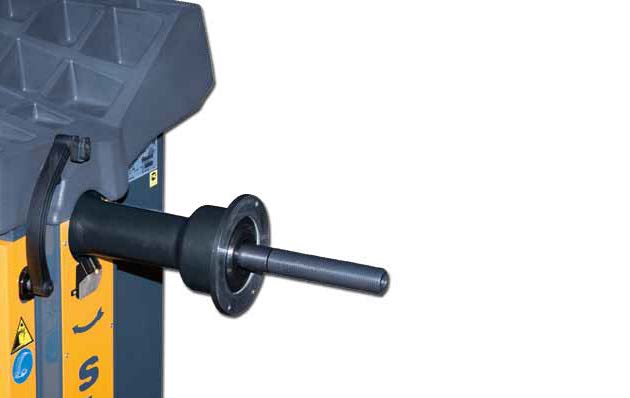 Spin Unit
Spin Unit
